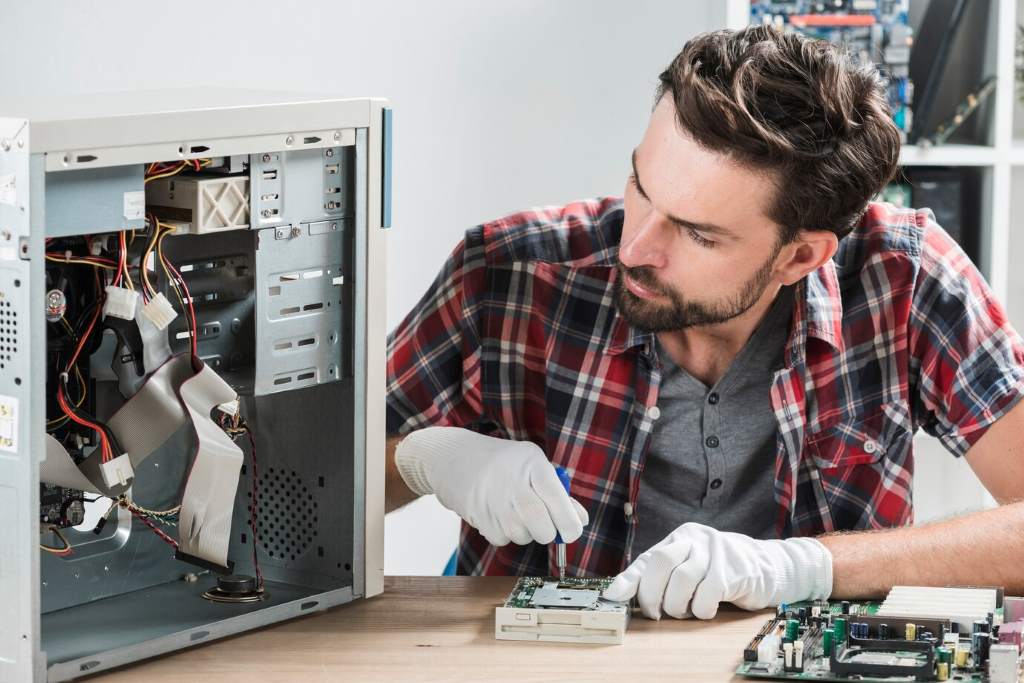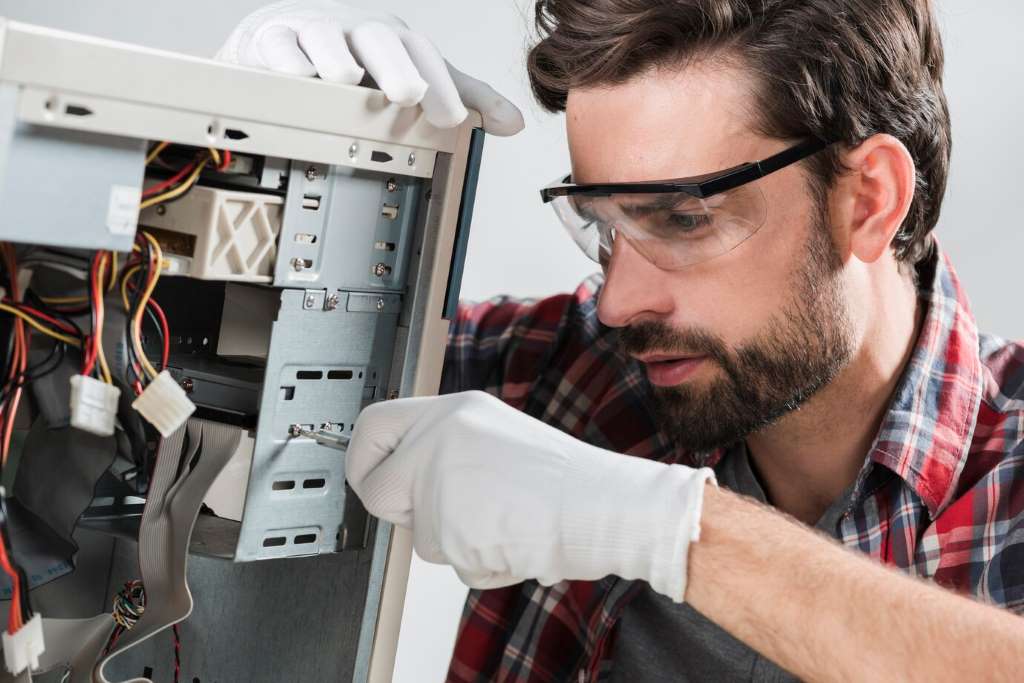Gaming should be fun, but a frozen computer can ruin the experience. You’re in the middle of an intense match, and suddenly, your screen locks up. Sound familiar? This issue affects many gamers, from casual players to pros. According to a 2023 survey by TechRadar, 68% of PC gamers reported freezing or crashing during gameplay. The causes range from hardware limitations to software conflicts. Understanding why this happens is the first step to fixing it. In this post, we’ll explore the main reasons your computer freezes when playing games and share actionable tips to keep your system running smoothly. As a gamer myself, I’ve dealt with this frustration firsthand—my old PC used to crash during long sessions, pushing me to research and solve the problem. Let’s dive into the causes and solutions to ensure uninterrupted gaming.
Overheating: A Common Culprit
Heat is a major reason computers freeze during gaming. Games push your CPU and GPU to their limits, generating significant heat. If your cooling system can’t keep up, components overheat, causing your system to slow down or freeze to prevent damage. A 2022 study by Puget Systems found that 45% of gaming PC failures were linked to overheating. Poor airflow, dusty fans, or outdated thermal paste can worsen the issue.
To combat overheating, check your PC’s temperature using tools like HWMonitor. If your CPU or GPU exceeds 85°C, take action. Clean your PC’s interior with compressed air to remove dust. Ensure fans are working and consider adding case fans for better airflow. Reapplying thermal paste to your CPU or GPU can also help. For laptops, use a cooling pad. I once fixed a freezing issue by cleaning my PC’s dusty fans, dropping temps by 15°C. Regular maintenance prevents overheating and keeps your gaming smooth.
- Monitor temps: Use HWMonitor to track CPU/GPU heat.
- Clean regularly: Remove dust every 3–6 months.
- Improve airflow: Add fans or use a cooling pad.
Insufficient Hardware: Are Your Specs Up to Par?

Games today demand powerful hardware. If your PC’s specs don’t meet a game’s requirements, freezing or crashing is likely. Components like your CPU, GPU, or RAM may struggle to handle modern titles. For example, a 2024 report by Steam showed 62% of gamers with 8GB RAM faced performance issues in AAA games, which often need 16GB or more.
Check the game’s minimum and recommended specs on its website or Steam page. Compare these to your PC’s setup using tools like Speccy. If your hardware falls short, consider upgrading. A GPU upgrade can boost performance significantly, while adding RAM is a cost-effective fix. My old rig with 8GB RAM froze during Cyberpunk 2077 until I upgraded to 16GB, solving the issue. If upgrading isn’t an option, lower in-game settings like resolution or texture quality to reduce strain. Ensuring your hardware meets game demands prevents freezes and improves gameplay.
- Check specs: Use Speccy to view your PC’s setup.
- Upgrade wisely: Prioritize GPU or RAM upgrades.
- Lower settings: Reduce graphics for weaker systems.
Outdated Drivers: A Silent Performance Killer
Graphics drivers are critical for gaming performance. Outdated or corrupted drivers can cause freezes, as they fail to communicate properly with your GPU. NVIDIA, AMD, and Intel release regular driver updates to optimize new games. A 2023 study by Tom’s Hardware noted that 30% of gaming crashes were tied to outdated drivers.
To fix this, update your GPU drivers regularly. Visit NVIDIA or AMD’s website, download the latest drivers for your card, and install them. Use tools like GeForce Experience or AMD Adrenalin for automatic updates. Also, update your motherboard and audio drivers from the manufacturer’s site. I once had freezes in Call of Duty because of an old NVIDIA driver—updating it fixed the issue instantly. Additionally, avoid beta drivers, as they may be unstable. Keeping drivers current ensures your system runs games smoothly.
- Update GPU drivers: Download from NVIDIA/AMD sites.
- Automate updates: Use GeForce Experience or AMD Adrenalin.
- Check other drivers: Update motherboard/audio drivers.
Software Conflicts: When Programs Clash
Background programs or conflicting software can cause your computer to freeze during gaming. Apps like antivirus software, Discord, or browser tabs consume CPU and RAM, leaving less for your game. Malware or corrupted game files can also trigger crashes. A 2024 report by PCMag found that 25% of gaming issues were linked to software conflicts.
To resolve this, close unnecessary programs before gaming. Use Task Manager to identify resource-heavy apps and end them. Run a malware scan with tools like Malwarebytes to rule out infections. Verify game files through Steam or Epic Games Launcher to fix corrupted data. I once had freezes caused by an antivirus scanning during gameplay—disabling it for sessions solved the problem. Additionally, disable Windows features like Game Bar or background recording, as they can interfere. Streamlining your software environment reduces conflicts and keeps games stable.
- Close apps: Shut down unnecessary programs via Task Manager.
- Scan for malware: Use Malwarebytes to check for infections.
- Verify files: Repair game files through Steam/Epic.
Insufficient Power Supply: Is Your PSU Struggling?

Your power supply unit (PSU) delivers energy to your PC’s components. Gaming demands high power, and a weak or failing PSU can cause freezes or crashes. According to a 2023 study by Corsair, 20% of PC instability issues were tied to underpowered PSUs. If your PSU’s wattage is too low for your GPU or CPU, it may struggle during intense gaming sessions.
Check your PSU’s wattage and compare it to your system’s needs using a tool like PCPartPicker. A modern gaming PC often requires 650–850W, depending on components. If your PSU is insufficient, upgrade to a reliable unit from brands like Corsair or EVGA. Ensure it has an 80+ Bronze rating or higher for efficiency. I upgraded my PSU from 500W to 750W when my PC froze during heavy games, and it fixed the issue. Also, inspect cables for damage and ensure proper connections. A strong PSU prevents power-related freezes.
- Check wattage: Use PCPartPicker to assess needs.
- Upgrade PSU: Choose an 80+ Bronze or better unit.
- Inspect cables: Ensure secure connections.
Storage Issues: Is Your Drive Holding You Back?
A full or failing storage drive can cause game freezes. If your hard drive or SSD is nearly full, it slows down data access, leading to stutters or crashes. Fragmented drives or failing hardware can also cause issues. A 2024 study by Backblaze found that 15% of HDD failures led to system instability during high-demand tasks like gaming.
Ensure your drive has at least 20% free space for optimal performance. Delete unused files or move them to an external drive. For HDDs, defragment the drive using Windows’ built-in tool to improve speed. If your drive shows errors, run a disk check with “chkdsk” in Command Prompt. Consider upgrading to an SSD for faster load times—my switch to an SSD cut freezes dramatically. If issues persist, test your drive’s health with CrystalDiskInfo. Keeping your storage healthy prevents game freezes and boosts performance.
- Free space: Keep 20% of your drive empty.
- Defragment HDD: Use Windows’ defrag tool.
- Upgrade to SSD: Improve load times and stability.
Conclusion
A computer freezing during gaming is frustrating, but the causes—overheating, weak hardware, outdated drivers, software conflicts, insufficient power, or storage issues—are fixable. By monitoring temps, upgrading components, updating drivers, closing apps, checking your PSU, and maintaining storage, you can enjoy uninterrupted gameplay. My own journey from a crash-prone PC to a stable gaming rig taught me the value of regular maintenance and smart upgrades. Take action today to diagnose and fix your system. Your next gaming session could be smoother than ever.
Have you faced game freezes? Share your experience or tips in the comments below! If this post helped, share it with fellow gamers to spread the knowledge.
FAQs
Why does my computer overheat only when gaming?
Gaming pushes your CPU and GPU harder than regular tasks, generating more heat. Poor cooling or dust buildup worsens it. Clean fans and improve airflow.
Can low RAM cause game freezes?
Yes, low RAM struggles with modern games, causing freezes. Upgrade to 16GB or more for smooth performance, as 8GB is often insufficient.
How do I know if my PSU is failing?
Freezes, crashes, or random shutdowns during gaming suggest a weak PSU. Check wattage with PCPartPicker and upgrade if it’s below your system’s needs.
Do background apps affect gaming performance?
Yes, apps like browsers or antivirus consume CPU and RAM, causing freezes. Close unnecessary programs via Task Manager before gaming.
Is an SSD better than an HDD for gaming?
SSDs load games faster and reduce stutters compared to HDDs. Upgrading to an SSD can significantly improve gaming stability and performance.

